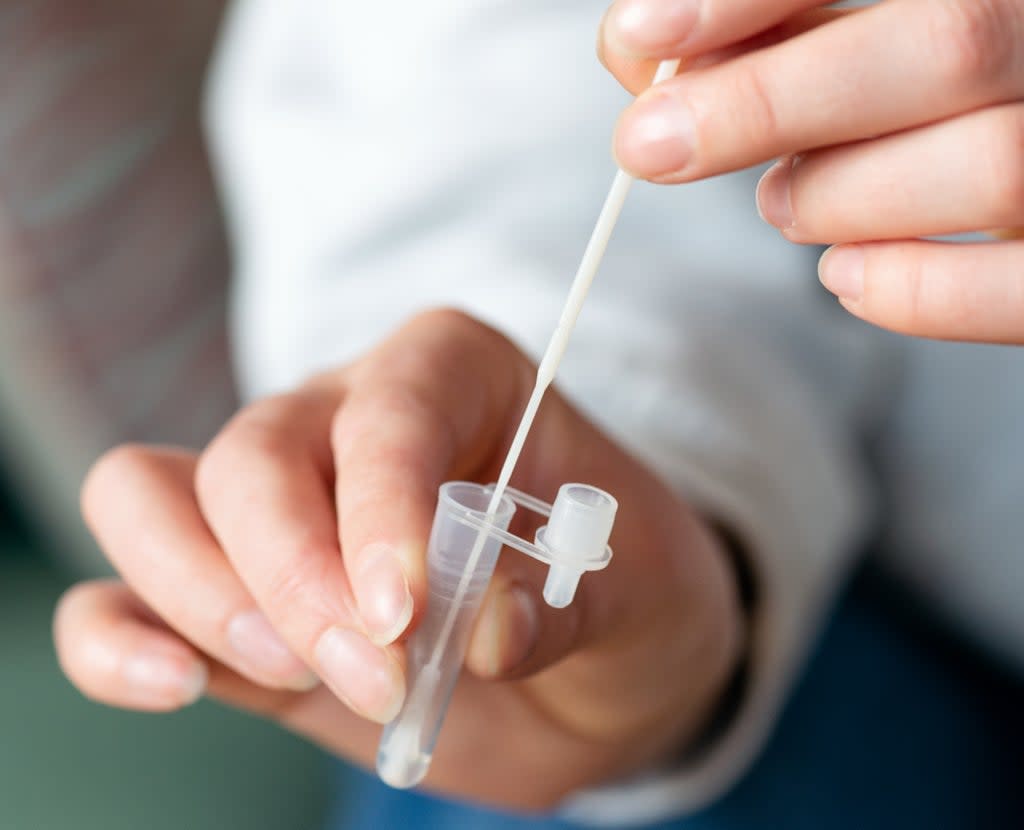Nine Omicron symptoms affecting fully vaccinated and two early signs you might have it

Omicron ruined Christmas plans for many last year, with record-breaking figures reported in the lead up to the festive season.
A surge in the infection rate saw England move back to plan B restrictions in December, which included mandatory face masks in public places, the return of work from home guidance and travel bans.
First detected in South Africa and Hong Kong in November 2021, Omicron was soon confirmed as the dominant variant in the UK in December.
But thanks to falling numbers over the last few weeks, England is back under plan A measures and the government is considering scrapping the Covid self-isolation rule within weeks.
There were 66,638 cases of Covid reported in the UK on Thursday, with the death toll rising by 206, bringing the total to 159,158. Though Omicron has a higher transmission rate than Delta, there have been fewer deaths and hospitalisations with the newer variant.
Here, we take a look at some of the most common symptoms with the new variant for the fully vaccinated, and two early warning signs you might have it.
Most common symptoms for the fully vaccinated
Although the vaccine protects against the more serious risks of the virus, it is still possible to contract Covid even if you have both jabs and a booster shot.
According to experts, the nine top symptoms experienced by people who are fully vaccinated and have a booster shot are: a runny nose, sore throat, sneezing, headache, cough, nausea, muscle pains, skin rashes and diarrhoea.
The mild nature of the symptoms makes it hard for people to distinguish the virus from a common cold.
But, according to Professor Tim Spector, behind the ZOE Symptom Study App, “around 50% of ‘new colds’ currently are, in fact, Covid”.
Two early warning signs you may have Omicron
Experts suggest there are two distinct symptoms that could be a sign a positive test is around the corner: fatigue and dizziness/ fainting.
More than simply feeling tired, fatigue can translate to bodily pain by causing sore or weak muscles, headaches, and even blurry vision and loss of appetite.
Dr Angelique Coetzee, a private practitioner and chair of the South African Medical Association, told Good Morning Britain that fatigue was one of the main symptoms of Omicron when the variant broke out in South Africa.
In fact, 40 per cent of women reported they struggled with fatigue due to Covid compared to one-third of men, according to a poll by Web MD that asked users how often they had fatigue from 23 December to 4 January.
Dizziness/ fainting is the second sign that you may have Omicron. A new report from Germany has suggested that there is a link between fainting spells and Omicron after doctors in Berlin found that Covid was triggering recurrent fainting spells for a 35-year-old patient admitted to hospital.
German newspaper Ärztezeitung said that the doctors could see a “clear connection” between the infection and the fainting spells.


